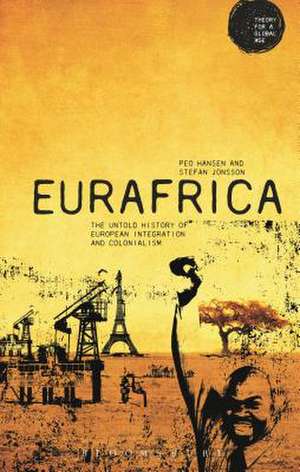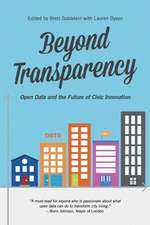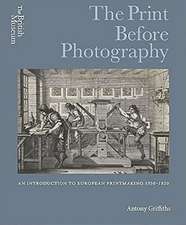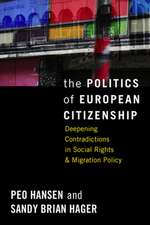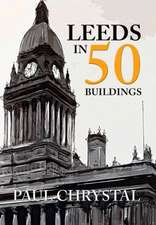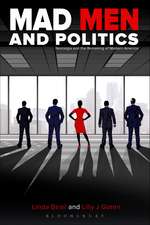Eurafrica: The Untold History of European Integration and Colonialism: Theory for a Global Age Series
Autor Peo Hansen, Professor Stefan Jonssonen Limba Engleză Paperback – 21 oct 2015
| Toate formatele și edițiile | Preț | Express |
|---|---|---|
| Paperback (1) | 180.88 lei 6-8 săpt. | |
| Bloomsbury Publishing – 21 oct 2015 | 180.88 lei 6-8 săpt. | |
| Hardback (1) | 599.34 lei 6-8 săpt. | |
| Bloomsbury Publishing – 22 oct 2014 | 599.34 lei 6-8 săpt. |
Preț: 180.88 lei
Preț vechi: 208.22 lei
-13% Nou
Puncte Express: 271
Preț estimativ în valută:
34.61€ • 36.14$ • 28.58£
34.61€ • 36.14$ • 28.58£
Carte tipărită la comandă
Livrare economică 15-29 aprilie
Preluare comenzi: 021 569.72.76
Specificații
ISBN-13: 9781474256803
ISBN-10: 1474256805
Pagini: 344
Ilustrații: 28 bw illus
Dimensiuni: 138 x 216 x 25 mm
Greutate: 0.45 kg
Editura: Bloomsbury Publishing
Colecția Bloomsbury Academic
Seria Theory for a Global Age Series
Locul publicării:London, United Kingdom
ISBN-10: 1474256805
Pagini: 344
Ilustrații: 28 bw illus
Dimensiuni: 138 x 216 x 25 mm
Greutate: 0.45 kg
Editura: Bloomsbury Publishing
Colecția Bloomsbury Academic
Seria Theory for a Global Age Series
Locul publicării:London, United Kingdom
Notă biografică
Peo Hansen is Professor in the Institute for Research in Migration, Ethnicity and Society (REMESO), Linköping University, Sweden.Stefan Jonsson is Professor of Ethnic Studies at Linköping University, Sweden.
Cuprins
Series Editor's Preface 1. Introduction: The Past that Europe Forgot 2. A Holy Alliance of Colonising Powers: The Interwar Period 3. Making Europe in Africa: The First Postwar Decade 4. The Eurafrican Relaunch: The Rome Treaty Negotiations, 1955-1957 5. Conclusion: Ending Colonialism by Securing its Continuation Bibliography Index
Recenzii
Eurafrica is a very timely book on an important topic. While stressing continuity across the twentieth century and cataloguing Eurafrican projects in an accessible and useful manner, it shows that colonies played a much more important role in the thinking about European cooperation than is generally acknowledged.
A powerful essay ... Hansen and Jonsson are to be commending for having written a book on European integration that will be of interest to scholars both of postcolonial studies as well as of modern European history in general.
It is not often that one reads a work of academic history that has both interpretative value and policy relevance, as Peo Hansen and Stefan Jonsson's Eurafrica does. .[This] splendid book rightly dwells upon the ambiguous legacy of the concept of Eurafrica for the process of European integration.
Hansen and Jonsson's exceptional study Eurafrica ... is invaluable in recovering the imperial history of Europe qua Europe.
[A] wide-ranging and carefully researched book ... The authors are to be commended for their extensive research.
A roseate glimmer of postwar peace attaches to 'Europe' - the fake continent and the organization of states that is said metonymically to stand for it. Hansen and Jonsson uncover something altogether different in the formation of the European project, something either unknown or papered over in embarrassed silence: Eurafrica. The colonial ideology, morphing into the neo-colonial here, is nothing less than astonishing.
[...] the work Eurafrica offers a very valuable contribution to the thorough knowledge and full understanding of the bond existing between decolonization and europeanisation processes. Based on a wide range of sources, it provides a general overview of the origins, motivations, forms and means of EC cooperation policies and illuminates the denseness of themes, controversies and approaches covered in research. In this way it advances knowledge about the debate on the "centrality of colonial legacy in early blueprints for European Integration" and provides a good fact finding of the state of the research in the field.
A powerful essay ... Hansen and Jonsson are to be commending for having written a book on European integration that will be of interest to scholars both of postcolonial studies as well as of modern European history in general.
It is not often that one reads a work of academic history that has both interpretative value and policy relevance, as Peo Hansen and Stefan Jonsson's Eurafrica does. .[This] splendid book rightly dwells upon the ambiguous legacy of the concept of Eurafrica for the process of European integration.
Hansen and Jonsson's exceptional study Eurafrica ... is invaluable in recovering the imperial history of Europe qua Europe.
[A] wide-ranging and carefully researched book ... The authors are to be commended for their extensive research.
A roseate glimmer of postwar peace attaches to 'Europe' - the fake continent and the organization of states that is said metonymically to stand for it. Hansen and Jonsson uncover something altogether different in the formation of the European project, something either unknown or papered over in embarrassed silence: Eurafrica. The colonial ideology, morphing into the neo-colonial here, is nothing less than astonishing.
[...] the work Eurafrica offers a very valuable contribution to the thorough knowledge and full understanding of the bond existing between decolonization and europeanisation processes. Based on a wide range of sources, it provides a general overview of the origins, motivations, forms and means of EC cooperation policies and illuminates the denseness of themes, controversies and approaches covered in research. In this way it advances knowledge about the debate on the "centrality of colonial legacy in early blueprints for European Integration" and provides a good fact finding of the state of the research in the field.
Caracteristici
A unique treatment of a concept which has potential impact across a range of humanities and social science disciplines
Descriere
Descriere de la o altă ediție sau format:
'Eurafrica' was an intellectual endeavour and political project that from the 1920s saw Europe's future bound up with Europe's sucessful merger with Africa. In assessing this historical concept the authors shed light on the process of European integration, African decolonization and the current conflictual relationship between Europe and Africa.
'Eurafrica' was an intellectual endeavour and political project that from the 1920s saw Europe's future bound up with Europe's sucessful merger with Africa. In assessing this historical concept the authors shed light on the process of European integration, African decolonization and the current conflictual relationship between Europe and Africa.
